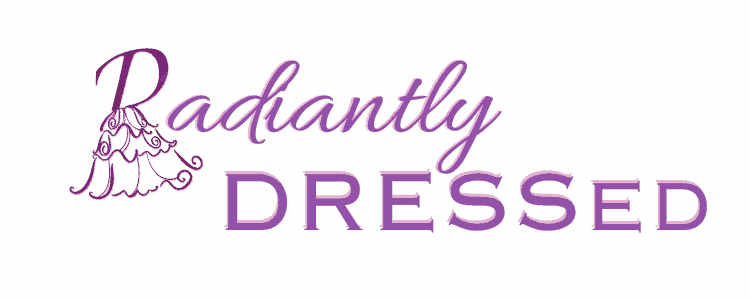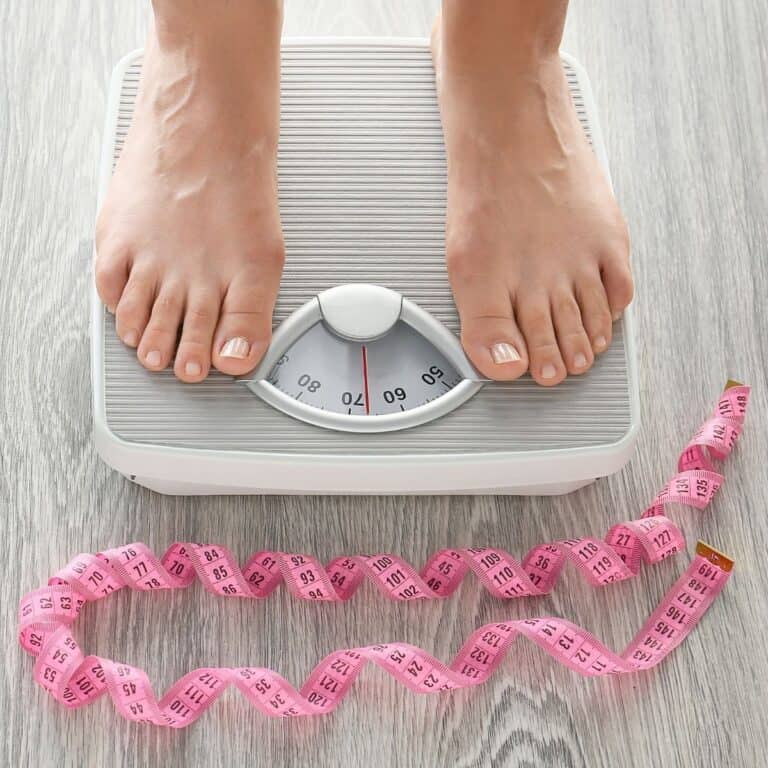Mental Health Awareness Month is a great time to reground your identity in Christ and embrace who you were created to be.

Today I’m talking about a serious issue: Mental Health Awareness Month. I’m not in any way a professional in health or mental health, but I am a mom who struggles with significant anxiety. While the depth and scale of mental illness are different for each woman, and deserves individual care, as women of God we are called to be set apart.
In this episode, I’m exploring the areas of identity, image, and comparison to look at how they have contributed to my own negative mental states and offer solutions and suggestions for how to control the things we can and lean on God for the rest.
May is Mental Health Awareness Month and to be completely honest, I didn’t really have any intention of addressing this until I got an email last week. It had some interesting statistics on it, and it just made me realize that this is an area that we definitely do need to talk about because so many of us as women are struggling with this.
Before we get into this content, I just need to add a disclaimer that I am not a mental health professional of any kind. I’m not a health professional either. This is not an area of expertise for me. What I’ll be sharing today is my opinion and my own personal experience.
If you are struggling with mental health, please, please speak with your health provider or mental health professional, seek wise counsel, and take this episode as just the musings of somebody who has been there. I have been there. I have a history of depression when I was in my twenties and anxiety as well as a mom.
I have struggled with anxiety quite a bit. Very high functioning, but almost debilitating at times. I dealt with anxiety, especially around the safety of my children and things of that nature. I also have been prone to postpartum anxiety after multiple children, which often manifests as rage, which is not pretty. And this last baby, baby number six, I actually had postpartum depression for the first time and I didn’t realize it for a long time.
When I finally did, it was a huge shift to see what had gone on in my head and the state I had been in and how different it was from who I normally am as a person.
And on top of this anxiety and depression at times, I also have PTSD from a couple of traumas. Two separate traumas have happened in my life: one old and one more recent. So I know what it’s like to struggle with these areas of mental health. I know that when it comes to talking about this from a religious perspective, a lot of times it’s not given the proper attention it deserves.
And a lot of times it’s not given the proper professional attention that it deserves. I know that sometimes people have been hurt by others who have said, oh, well, you just need to pray harder or have more faith, or et cetera, et cetera. But I find that really insulting a lot of times to people who are struggling and need more help than prayer and more faith is going to give them, because we don’t tell diabetics, oh, just pray a little bit more and don’t take your insulin.
The reality is that mental health is a disorder that often does need more intense treatments and therapies. So I want to talk about this email. I got it a while back and it is what got me on the path of this episode today and thinking about these areas that I want to talk about in regards to ourselves. And maybe a little bit about our daughters too.
Mother’s Day was just this last weekend and I have a daughter. And this, really, really triggered me the other day. It was a survey on youth risk behavior, and it was talking about teenage girls. It said that 30% of girls said that they had seriously considered suicide in the past year. And 24% said they had an actual plan to end their life.
16.4% of youth reported experiencing a major depressive episode within the last 12 months. This news, they said, comes at a time when adults are feeling so lonely that the US Surgeon General declared loneliness a public health emergency. I want to unpack some of these things because I know that as adults we are also experiencing levels of anxiety, depression, and struggles with our own mental health.
I think that we can actually look into the world around us and attribute it to some very specific things. But these stats on what’s going on with our youth, I think illustrate the same problems that we as adult women are also experiencing – feeling lost in a sea of overwhelm from media culture, and a lot of different dissenting voices.
join the style membership for fashion frustrated women
The Radiant Woman Adventure
Understand your personal style, choose clothes that flatter your body, and look amazing every day. Get help with color analysis, style essence, body type, and building an easy simplified closet with a personal stylist in your pocket.
Table of Contents
Women’s Mental Health Awareness Month: Your Identity
The first thing I really want to talk about is the concept of identity. It’s possible I could rub some people the wrong way with this conversation, but I’m going to try to keep it pretty above level and nice for the sake of conversation. The question I want us to really consider is, are we fighting against who and what God called us to be?
It’s really interesting because I want to look up the definition of identity to really get a grasp on it for this episode. What I’ve found is exactly what I’m talking about here: the condition of being oneself or itself and not another. Most of us don’t think about being two people or three people, but one of the definitions of identity is literally just being one person– the state or fact of being the same one as described.
There’s a little bit of that talk of authenticity here. Of being who you think you are or who you say you are. Does your identity align with that internal dialogue? The sense of self-providing sameness and continuity and personality over time and sometimes disturbed in different types of mental illness. So the definition itself is literally telling us that having a crisis of identity, not knowing who we are can lead to mental illness.
I think that in our current culture, we live in a culture now that says that you can be anything that you want to be, but that is not a biblically factual statement. God says that you are exactly who he created you to be. I think that we can go beyond just biology here and into a very sensitive topic in today’s culture that I’m not really going to go deep into.
I think that we can go beyond here. Just the idea that God created you male or female and to think about what the Bible says about our identities in relation to that biological creation. God created men to be a certain way, biblically to be providers of the family, and to have certain personality characteristics that help them to be the leaders of their home, and the leaders in the church.
Then women, of course, were created to be complimentary to that. We have our own strengths and that doesn’t make us less than it makes us worthy and equal. But the reality is that we live in a culture that often tells us that we should be, especially as women, that we should be everything.
Simplistically from a biblical perspective, God called many of us to be wives, homemakers, and mothers. Three fairly simple things. Of course, you can go into Proverb 31 and see that she has a lot of things going on, but at the core, she is a wife, a homemaker, and a mother. I think that sometimes we get confused because there are so many voices telling us that we need to be a lot of other things.
Some of you have to work to bring in income. And so that is also part of your identity. But we’re supposed to have hobbies and we’re supposed to do self-care, and we’re supposed to have 50 hours in the day to do all of these things that make up our approved societal image or identity. I think that we get trapped in this concept because we’re trying to create an identity that is much too overwhelming and out of line with what God primarily created us to do and called us to do.
And so there’s the question: Are we fighting against who and what God called us to be? So what did God call you to? What has he called you to in your life? Are you fighting against it? Are you running away from it? Is this disconnect and this dissonance causing some of your struggles, some of your anxiety, and some of your depression because you feel like you should be one thing, but you’re not that thing?
These are questions to examine and think about from a biblical perspective.

Women’s Mental Health Awareness Month: Your Self-Image
The second area that I want to talk about is the area of self-image. This is a big word for me because as an industry those in my profession are considered to be image consultants. Image is pretty much everything, again, similar to identity, but it’s all of the things that make you who you are on the outside.
It’s what you’re presenting to the world. If you think about something like McDonald’s, the golden arches are a huge part of their image. It’s a well-known icon. Who we are on the outside is really a similar type of branding experience. We are our own personal brand. We are presenting an image. And I always tell people, you are presenting an image either intentionally or unintentionally. So it pays to be mindful of what you are displaying to people and the image that you are showing.
In this case, I want to tell a story of a girl I knew over a decade ago. She was the most radiant person I’ve ever met. You could literally see Christ in her. She just shined and glowed. Every interaction with her was like a beacon of Jesus inside of her. And I’ve never to this day met anybody who did that the same way – it was just stunning. It left such an impression on me even though I’ve lost touch with her over the years.
When I think about image, we’re projecting an image of who we are. We’re supposed to be the image bearer of Christ. In Genesis, if you translate it into Latin, when he’s talking about creation he created man and woman in the image of God. It’s called Imago Dei. It’s a phrase that comes to my mind all the time thinking about the work that I do with clients and who we are as women, and how to bring those two things together under a Christ-like umbrella.
What does it mean to be the image of God, to be the image bearer of Christ?
I read a quote about this, “the biblical passage does not imply that God is in a human form, but that humans are in the image of God in their moral, spiritual, and intellectual essence”. I’m not trying to give God any anthropomorphic attributes here. We are talking about how God created mankind to embody his essence.
We will talk about essence in another area, but really it’s that whole idea of essence, all that we are internally. That identity thing that we talked about earlier. Back to this girl I knew– it’s really interesting because I knew her, I met her when she was engaged, and then I knew her when she got married. And then, unfortunately, I found out many years ago that she had gotten divorced.
It was really interesting to me because I almost feel like that radiance about her, that just very obvious Holy Spirit Christ glow, that she had almost dimmed a little after she got married. I don’t know the ins and outs of the situation. But it got me thinking about that thing of what we’re doing in society. We’re doing all these things: momming and cleaning and running the errands.
We’re so busy, we’re trying to fulfill the standard that really is impossible. The Proverbs 31 woman had servants. We look at her and we think, oh, she’s this paragon of domestic perfection. But if you read the passage, it’s very clear that she had household servants who helped her do a lot of these things. She was not doing this alone.
If you look at some of the other biblical paragons of womanhood they have a village. We don’t really have that nowadays. We’re out here oftentimes in the boat alone, rowing along, trying to do all of the things. What I want to think about here is, are you doing the things? Is the image that you’re portraying this person that you are? Is it because you’re doing too many things? Like too many things that you maybe shouldn’t be doing?
I am not a natural yes person. I’m actually more of a no person. I find it easier to say no to a lot of things than to say yes to everything. But I know that many high-achieving, high-functioning women, especially those who are struggling with anxiety specifically tend to say yes to a lot of things. I think that it dims who we are.
It diminishes who God is calling us to be because we’re so distracted with everything else. So how is that image going for you? Do you feel like the image you’re presenting is authentic and accurate with who God called you to be? Or do you feel like there’s a disconnect? And is that disconnect one of the areas that’s causing you unhappiness and discontent in your life?
Is it creating extra anxiety, causing you to feel less than others and get into these negative feedback loops where you feel like you’re not measuring up and you’re not good enough? Or you’re not adequate because you can’t keep up with Sally down the road who’s got a 4,000 square foot house that’s Pinterest perfection, and she makes homemade cupcakes for every birthday?
This brings me to the third thing that I want to talk about, which is this area of comparison.
Women’s Mental Health Awareness Month: Comparison
I’m gonna give away my age here a little bit when I talk about this, but, I think so often about what my life would be like if I had grown up in the social media age. And I don’t even want to think about it. I have enough problems and I have enough anxiety and depressive history here to know that even as an adult, social media has been such a hard thing to manage. I can’t even imagine trying to manage it with an underdeveloped adolescent brain.
Interestingly enough we had the internet at my house when I was 17, I think. In my senior year of high school, we had the internet, and it was old school, it was AOL dial-up. I know you hear that sound in your nightmares because I still do too. You think about how slow it took, and I’ll be honest with you back then there were message chat rooms and things like that, but I was really into this one website called Open Diary.
So basically I’ve been a blogger for like the last 25 years. It was weird because it was this platform for blogging, but it wasn’t blogging, I think of it now, like helpful articles. It was literally just like personal diaries. And I met all these strangers and shared all this personal information in a way that now you look back and you think, oh, why would I do that?
But we are still doing that, right? We’re still doing that on Facebook and Instagram. We’re still sharing all of our thoughts and images and all of these different things. It brings me to the thought of comparison. Like back then I didn’t think about comparison because everybody was just in their feeling all the time. On open diary, everybody had problems and we were just airing them out there.
You didn’t see all the images of perfection. And for me, as an adult, I guess something that really has been hard for me is just Instagram in general. I was not an early adopter of Instagram. I just never really got on there. I don’t know, I’ve always been more of a Facebook kind of person.
But I set up an Instagram for my business when I first got started and I tried a little bit to play their game and do their rules. But I found that Instagram was a massive trigger for me, so much that I would go on the app and I like immediately scrolling. I would go down a rabbit hole of negative thoughts, negative feelings, comparisons, and what ifs. It was terrible to the point that I do not even open Instagram anymore.
I don’t use it for my business. I find it to be incredibly damaging. But I also don’t use any other social media hardly at all either. I don’t use TikTok. And I couldn’t even tell you what other social media apps are actually trending at this point. Maybe that’s because I’m old, but it’s also because I recognize that what is going on there is only the highlight reel.
You’re seeing the best of the best of people’s lives, what they want you to see. You’re not seeing the negatives, you’re not seeing the fights with their husbands, you’re not seeing their kids yelling at them, you’re not seeing the messy rooms in their house. You’re not seeing all of that stuff. And I think that spending too much time on social media or spending too much time anywhere that you are laden with images of perfection.
You are literally feeding your mental state constant negativity. I don’t know what app it is for you. I don’t know if it’s Instagram or Pinterest or TikTok or Facebook. I don’t know what you’re looking at, but I can guarantee you that if you’re spending any time at all on there, you’re seeing things that are making you feel awful.
What I would really like to encourage you, especially in this area right here of comparison, is to try a short social media blackout. Try to step away from the one that’s triggering you the most. Do it for a week. Just take the app off your phone, and stay off of it.
Do not let the world tell you who you are. Don’t let them tell you who you’re not. Focus on what you were created to be. Focus on who God called you to be. Stop worrying about what everybody else says you should be doing, and focus on what God wants you to be doing. That’s going to be different for each of us. We all have our own strengths and weaknesses, and God’s called us to different small things in our life.
For many of us, the big things are gonna be the big things. And that’s where we need to be spending our energy, not focused on whether or not we have the latest trending quartz countertops or if our shoes cost $200. I can’t imagine being a teenager in this culture right now.
I have daughters and sons, and it will be a long, long time before I allow them access to social media because I want them to know, going back through what we talked about today, that their identity comes from God. I want to be the hedge around that learning experience to tell them this is what God says, this is who God created you to be.
So that they’re not confused about their identity and they know where it comes from, and who the source is, so they can tune out those external discussions about what it is. Second, I want them to know that they are an image bearer of God and that they were created for very specific callings they’ll be given. And not to get caught up in too many things that are not a good use of their time and their energy and their callings and their strengths.
I also want to stop that comparison. I feel fortunate in a way. I feel like Covid gave us a blessing along with having several babies during this time period that we just stopped so many socialization activities. And that’s good and bad, obviously, it’s a different conversation. I’m grateful that we spend so much time insulated with other families who raise their kids similarly to us and have similar belief systems to us. We’re able to just keep our kids from avoiding the comparisons that are so rampant in society.
I want you to take this and think about it. Think about it for your children, but also think about it for yourself because the problems are the same. Just because we’re adults and just because our brains are fully developed doesn’t mean that we are not subject to these same areas of questioning and doubt, and they begin to feed our anxieties, and anxiety over time can feed depression.
If you’re struggling with these things in relation to your mental health, I want to encourage you to look at ways that you can reduce the comparisonitis. Look at ways that you can go back to the truth of who you are and dig into what God says about you and who God says about who God says that you are and what He created you for specifically.
Final Thoughts on Women’s Mental Health Awareness Month
And again, I do want to make note that this topic feels a little crazy. I felt like I rambled a little bit because it’s deep and it’s heavy, and it goes into a lot of things. I’m not a mental health professional. I’m just a mom who has anxiety and depression and PTSD and still has to function and follow Christ.
But it is my responsibility to look at the life that I’m living and try to actively manage some of the things that I know are causing me harm. That’s really what I wanted to share with you today, that these are the things that I have found to be more harm than good in my own life. And that regardless of where my baseline mental health sits, these are things that are damaging to it.
Mental health is a complex scientific thing about brain chemistry and all this other stuff. But we are, as Christian women, called to be set apart, called to be different. Even if we, including myself, are struggling greatly with anxiety, sometimes to the point where it’s hard to take my kids to the park because I’m afraid they’re going to die by falling off the slide.
That’s what it’s like for me. I still have to fight that, and I still have to give that over to God. I still have to let that go and pray about that and just trust that he is good and it’s out of my control. I know that some of you have anxieties about your kids that are way bigger than that, but that is not really the heart of my content today.
That’s not really the heart of this podcast. The heart is being an active manager of the things we can control and the things that we know are damaging and harming to us and contributing to our mental health, our depression, and our anxiety. All of these things that we’re thinking and feeling and putting a cap on. We need to be the ones to say enough is enough.
I am not going to let these things make my situation any worse than it already is. I’m going to just stop them. I’m going to let them go and focus my energy on the things that do make me feel better about who I am and make me feel content and at peace with who God created me to be. On that note, I want to end with a prayer.
Lord, I ask you to please give peace and compassion to all of the women who are suffering from mental illness. We know that you created everything good and perfect, and this is just one of those things that is a result of living in a fallen world that is marked with sin. And it is just one of those thorns in the side that many of us have to wake up every single day, and we have to push through and lean on you and let you be the author and perfector of our faith, Lord.
And we know that you don’t call us to everything that we can’t handle, but the purpose is to make us lean on you and realize that you are our true strength and that you are the only source that can get us through these difficulties in our life, Lord. And so I pray abundant peace and blessing on these women, if it is your will, Lord, if you choose to do so. Lord, I pray for healing over those who are struggling with mental health because we know that Jesus never refused to heal and he was always willing. And so I pray that if there are those seeking healing, that you would be willing Jesus, and that you would touch them and improve their lives.
Lord, I thank you for a community of women who are beautiful and strong and passionate about following you. Who blesses me every day and helps me to see that even though we’re all different, we don’t have to struggle from comparisonitis. That we can be beautifully unique in our own ways, and be content with who you’ve created us to be. In Jesus’ name, amen.
Related Articles on Faith and Mindset:

Instead of focusing on the things of the world take time during Women’s Mental Health Awareness Month to focus on who God called you to be.
Stacey is the owner and creator behind Radiantly Dressed. She is a certified image consultant and AICI member focusing on creating simplicity in wardrobes via color and style.















